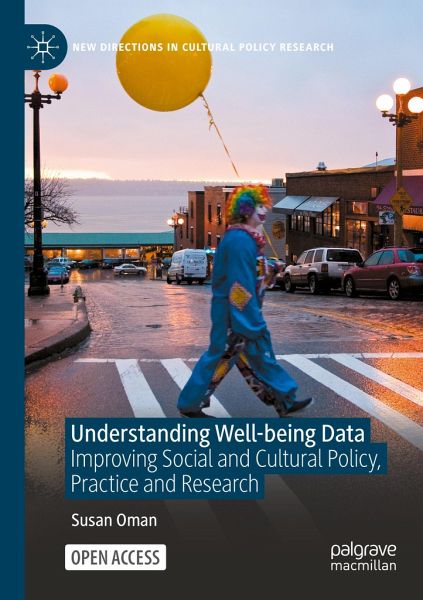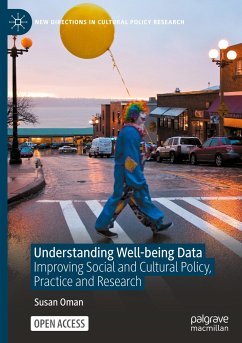
Understanding Well-being Data
Improving Social and Cultural Policy, Practice and Research

PAYBACK Punkte
12 °P sammeln!
'Following the data' is a now-familiar phrase in Covid-19 policy communications. Well-being data are pivotal in decisions that affect our life chances, livelihoods and quality of life. They are increasingly valuable to companies with their eyes on profit, organisations looking to make a social impact, and governments focussed on societal problems. This book follows well-being data back centuries, showing they have long been used to track the health and wealth of society. It questions assumptions that have underpinned over 200 years of social science, statistical and policy work.Understanding W...
'Following the data' is a now-familiar phrase in Covid-19 policy communications. Well-being data are pivotal in decisions that affect our life chances, livelihoods and quality of life. They are increasingly valuable to companies with their eyes on profit, organisations looking to make a social impact, and governments focussed on societal problems. This book follows well-being data back centuries, showing they have long been used to track the health and wealth of society. It questions assumptions that have underpinned over 200 years of social science, statistical and policy work.
Understanding Well-being Data is a readable, introductory book with real-life examples. Understanding the contexts of data and decision-making are critical for policy, practice and research that aims to do good, or at least avoid harm. Through its comprehensive survey and critical lens, this book provides tools to promote better understanding of the power and potential of well-being datafor society, and the limits of their application.
Understanding Well-being Data is a readable, introductory book with real-life examples. Understanding the contexts of data and decision-making are critical for policy, practice and research that aims to do good, or at least avoid harm. Through its comprehensive survey and critical lens, this book provides tools to promote better understanding of the power and potential of well-being datafor society, and the limits of their application.












